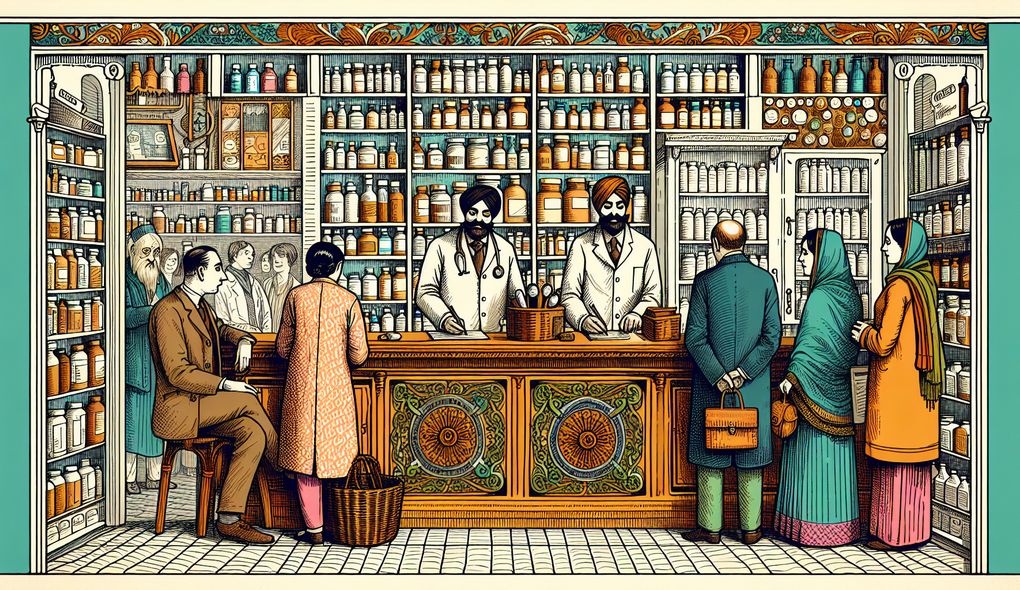How do you handle a situation where a physician prescribes a medication that may be inappropriate for a patient?
JUNIOR LEVEL

Sample answer to the question:
When a physician prescribes a medication that may be inappropriate for a patient, I would first ensure that I fully understand the situation by reviewing the patient's medical history and any relevant information. Then, I would consult with the physician to discuss my concerns and provide alternative, more appropriate medication options if necessary. Additionally, I would communicate with the patient to explain the situation and potential risks associated with the prescribed medication. Finally, I would document the entire process and any decisions made to ensure proper documentation and continuity of care.
Here is a more solid answer:
In a situation where a physician prescribes a medication that may be inappropriate for a patient, I would first conduct a thorough review of the patient's medical history, including any allergies or contraindications. This would involve analyzing the patient's electronic health records and consulting with other healthcare professionals, such as nurses or pharmacists who may have additional insights. Once I have gathered all the necessary information, I would approach the physician with my concerns in a collaborative and respectful manner. I would provide alternative medication options that are more suitable for the patient's condition and ensure that the physician understands the potential risks associated with the original prescription. If needed, I would involve the patient in the conversation, explaining the situation and helping them understand why the prescribed medication may not be the best choice. Throughout this process, I would maintain open and transparent communication with all parties involved, documenting the discussions and decisions made to ensure proper follow-up and continuity of care.
Why is this a more solid answer?
The solid answer addresses the question more comprehensively by providing specific steps and examples of how the candidate would handle the situation. It demonstrates their proficiency in the evaluation areas by showcasing their attention to detail, critical thinking, communication skills, ability to work collaboratively in a healthcare team setting, and knowledge of pharmacy law and medical ethics. The answer could be further improved by incorporating additional examples or highlighting any relevant experiences that demonstrate these skills.
An example of a exceptional answer:
Handling a situation where a physician prescribes a medication that may be inappropriate for a patient requires a balanced approach that takes into account the patient's safety and the collaborative nature of healthcare. One instance where I encountered this situation was during my pharmacy internship when a physician prescribed a medication that had a potential drug interaction with the patient's current medications. To address this, I conducted a thorough review of the patient's medication profile, analyzing the specific drug interactions and their potential consequences. Armed with this information, I approached the physician, highlighting the specific concerns and providing evidence-based alternatives. We engaged in a detailed discussion, considering the patient's medical history and existing treatment plans. Ultimately, we agreed on an alternative medication that was safe and effective for the patient. Throughout the process, I communicated with the patient, explaining the situation, addressing any concerns, and ensuring their understanding and consent. This experience highlighted the importance of maintaining open and respectful communication within the healthcare team, prioritizing patient safety, and utilizing evidence-based practices. By following these principles, I believe I can effectively handle similar situations in the future.
Why is this an exceptional answer?
The exceptional answer goes above and beyond in addressing the question by providing a detailed and specific example from the candidate's past experience. It effectively showcases their proficiency in the evaluation areas by demonstrating their critical thinking skills, attention to detail, ability to work collaboratively in a healthcare team setting, and knowledge of pharmacy law and medical ethics. The candidate also highlights their interpersonal and communication skills by emphasizing the importance of open and respectful communication with both the physician and the patient. The answer provides a clear and concise narrative that effectively conveys the candidate's ability to handle such situations in a responsible and patient-centered manner.
How to prepare for this question:
- Familiarize yourself with the common drug interactions and contraindications to be better prepared for addressing inappropriate prescriptions.
- Study relevant laws and ethical guidelines related to medication prescribing and dispensing to understand the legal and ethical responsibilities in these situations.
- Practice role-playing scenarios where a physician prescribes an inappropriate medication and work on effectively communicating your concerns and providing alternative options.
- Stay up-to-date with the latest research and developments in the field of pharmacy to ensure you have the most current information when discussing potential medication issues.
- Develop strong critical thinking skills by actively seeking opportunities to analyze and evaluate medication-related cases or scenarios.
- Seek mentorship or guidance from experienced pharmacists to learn from their insights and experiences in handling medication-related challenges.
What are interviewers evaluating with this question?
- Interpersonal and communication skills
- Critical thinking and problem-solving
- Attention to detail and accuracy
- Ability to work collaboratively in a healthcare team setting
- Knowledge of pharmacy law and medical ethics

